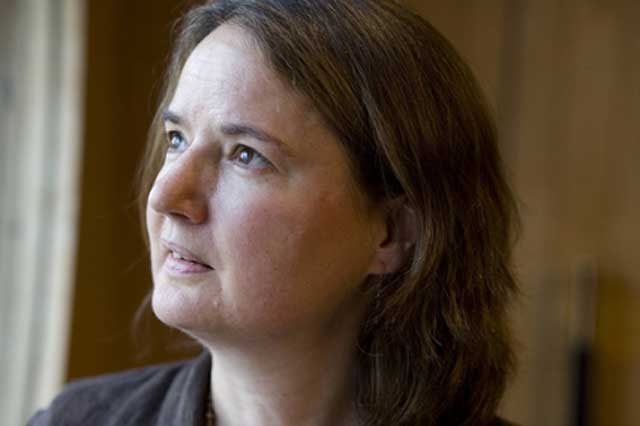Of Mutability, By Jo Shapcott<br />Rough Music, By Fiona Sampson

Both these new poetry collections demonstrate their authors' interest in the genre that involves writing about other art-forms, ekphrasis. For Jo Shapcott, the work of the late avant-garde artist, Helen Chadwick, provides inspiration. The title's direct reference is not to Spenser's envoi to The Faerie Queene but to Chadwick's 1986 ICA exhibition, "Of Mutability".
Chadwick's technique often involved mixing organic and inorganic material, and the poems negotiate metaphorical equivalents. Some borrow the artist's titles, but their aim is dramatic rather than descriptive. "Viral Landscape," in which Chadwick superimposed magnified photos of her own cells onto photographed landscapes, enables Shapcott to cross into a much-loved pastoral scene and introduce the mutable entity of her own body: "The trees around the perimeter/ were a block of solid colour,/ (my stomach fluttered at the sight – and/ gut epithelium is five days old at most)".
How to keep the autobiographical self under control but within touching distance seems to be the underlying challenge. Bodily sensations may assert themselves in the form of aching hips and itching skin, but "Don't trouble... to head anywhere but the sky" concludes the title sonnet. Looking down, you might "see your feet/ mistrust the pavement and your blood tests/ turn the doctor's expression grave". The poems translate breast cancer's mutations and terrors into fruitful and humorous accumulations of paradox, play-science and metamorphosis. Beyond the bodily disarray, the climate may cave in ("Composition") but the earth also offers refuge.
There are glassy solids: a jade marble, London's "Gherkin". At the end of "Somewhat Unravelled", an artfully constructed dialogue between the poet and a confused elderly relative, the speaker is invited to "rootle in the earth outside my front window,/ set yourself in the special bed, the one only/ wasname is allowed to garden...". Focused on process and becoming, Of Mutability is an inventive series of strategies for tuning chaos into counterpoint, flight into the arts of fugue.
Like Shapcott, Fiona Sampson is acutely conscious of the physical self through space and time. "Hayfever Portrait" might be at home in Of Mutability – which is not to suggest an influence, but a zeitgeist. Once, poetry's radical new mode was confessionalism and, for women poets, the politically significant foregrounding of their own stories. Now the search is on for meta-narratives.
Sampson, however, is interested in definition rather than metaphorical ramification. Her enabling art, music, is more mutable than any. It slips away in time, as we do, but she knows how to translate its devices into language. Rhythm is essential, and she is an artist of line and stanza-break. Post-modernist techniques need not preclude the uses of expectation, and Sampson finds new subtleties in rhyme. There's the hide-and-seek of "Charivari", the Dickinsonian pointedness of "From the Adultress's Songbook".
"Rough Music" denotes the mayhem of carnival, but this collection invites us to take plenty of smooth with the rough. The title-poem works like recitative, and records a conversation between Orpheus, Euridice and Hades. The young lovers are brilliantly punkish figures, Orpheus "a smack-head guitar dreamer" and Euridice, the eternal "lost girl" preferring suicide to fixed identity. Menotti's operatic Christmas classic, Amahl and the Night Visitors, and Schubert's great Quintet in C major, D. 956, also provoke potent writing.
Although the fine sequence "Schubertiad" is the only poem directly concerned with this composer, the liminal quality of his music seems echoed in much of Sampson's writing. She, too, executes swift and surprising modulations, and possesses the knack of combining pizzicato and melodic effects. Sampson's mysteries and epiphanies are powerful because they register not only in the macrocosm of metaphor, but in the microsphere of form.
Carol Rumens's 'De Chirico's Threads' is published by Seren
Join our commenting forum
Join thought-provoking conversations, follow other Independent readers and see their replies
Comments